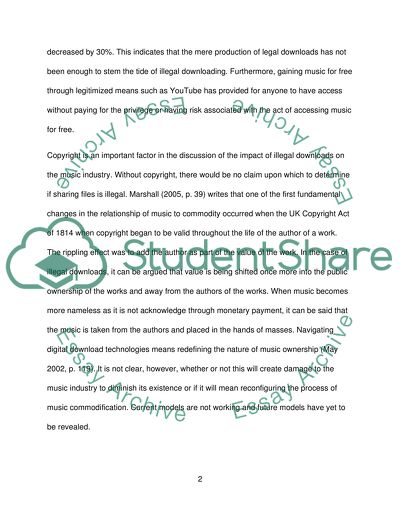Cite this document
(“Critically Assess the Proposition that Illegal Downloading is Essay”, n.d.)
Critically Assess the Proposition that Illegal Downloading is Essay. Retrieved from https://studentshare.org/journalism-communication/1465922-critically-assess-the-proposition-that-illegal-downloading-is-destroying-the-music-industry
Critically Assess the Proposition that Illegal Downloading is Essay. Retrieved from https://studentshare.org/journalism-communication/1465922-critically-assess-the-proposition-that-illegal-downloading-is-destroying-the-music-industry
(Critically Assess the Proposition That Illegal Downloading Is Essay)
Critically Assess the Proposition That Illegal Downloading Is Essay. https://studentshare.org/journalism-communication/1465922-critically-assess-the-proposition-that-illegal-downloading-is-destroying-the-music-industry.
Critically Assess the Proposition That Illegal Downloading Is Essay. https://studentshare.org/journalism-communication/1465922-critically-assess-the-proposition-that-illegal-downloading-is-destroying-the-music-industry.
“Critically Assess the Proposition That Illegal Downloading Is Essay”, n.d. https://studentshare.org/journalism-communication/1465922-critically-assess-the-proposition-that-illegal-downloading-is-destroying-the-music-industry.


